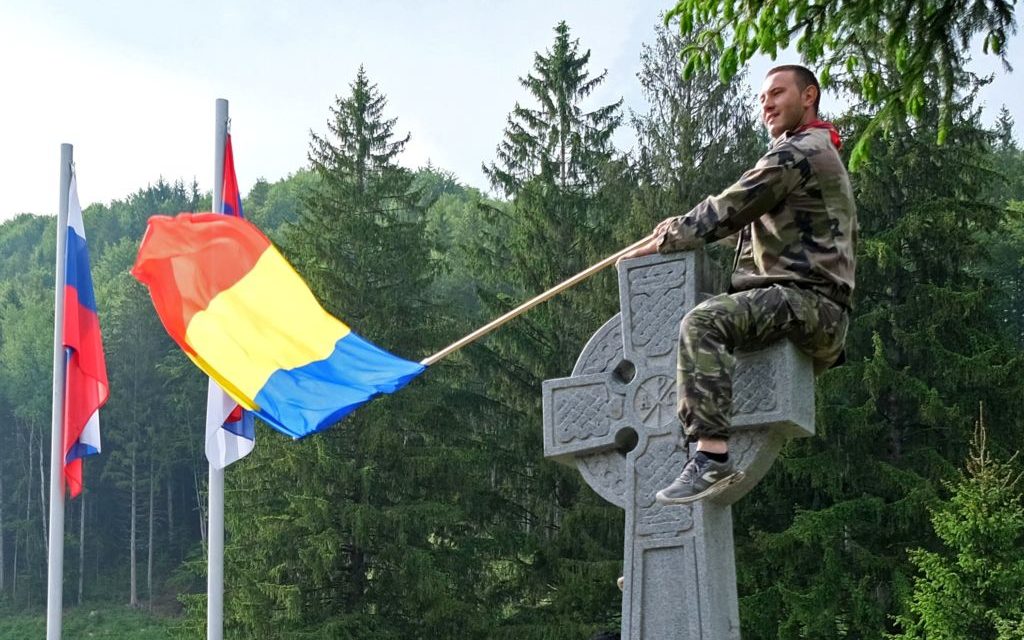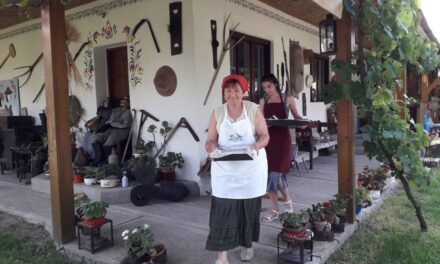Compared to other groups, the United States is less concerned with rights violations affecting Hungarians in Romania.
At the end of April, the Csíkszereda prosecutor's office closed the criminal proceedings initiated last year in the case of the vandalism of the Úzvölgy cemetery without indictment. But this is just a drop in the ocean: the reports of the Mikó Imre Legal Protection Service reveal that the intensity of anti-Hungarianism has increased in Romania, and the strengthening of negative attitudes towards Hungarians is worrying.
The hateful incidents that took place in the sports stands last year, as well as the attacks that came in various forms are memorable: the painting of signs in Hungarian, the rioting of extremist groups in the cities of Székelyföld, and the initiation of a large number of lawsuits by Sovén organizations.
Also in April, the US State Department published its 2023 human rights report on Romania - however, the above was somehow left out of the document. On the other hand, it is noted in the annual report that government corruption is serious in our neighbor and that no significant changes have taken place in respect of human rights in Romania. In the 51-page document, it is emphasized that anti-Gypsyism and anti-Semitism are a social problem, but only a three-sentence paragraph was devoted to Hungarian grievances.
Despite the fact that many cases are presented in which the Romanian authorities far exceeded their powers, or in other cases, on the contrary, did not act with the necessary force to resolve the situation, none of them apply to Hungarians. Romanian leadership is generally found to be ineffective in preventing discrimination and violence against racial or ethnic minorities, and prosecutions of this type are rare. And that is all.
From the Hungarian point of view, the obstacles to the use of the mother tongue and the situation of properties illegally taken by the state reached the stimulus threshold of the reporters. They describe that the Romanian authorities do not respect the law that stipulates that ethnic minorities have the right to manage their affairs with local governments in their native language in those settlements where their proportion reaches 20 percent of the population. They highlight the case of properties illegally confiscated by the Romanian state, and emphasize that the adjudication of claims related to properties owned by national minority communities takes too long, and that disproportionately few properties linked to churches and national minorities are returned.
Do they not see or do they not want to see the other grievances of Transylvanian Hungarians? Maybe the ball bounces on the home side? Minority lawyer András Bethlendi from Cluj explains that the United States' annual state report on human rights examines states according to the standards of human rights contained in international conventions. According to him, for an advocacy group that is ready to act, these reports can serve as a valuable resource in thematizing and promoting their own cases.
"There is not a single indispensable Hungarian legal protection organization in Romania"
He emphasizes: regarding the Transylvanian Hungarians, a number of specific cases in the last ten years have reached the stimulus threshold of the American reporters. The violent events in Úzvölgy, discrimination in a Cluj-Napoca hospital, state opposition to the use of the Székely flag, ex-Prime Minister Mihai Tudose's scandalous statement, anti-Hungarian hostility experienced at sports events, or the court blocking the registration of the Pro Turismo Terrae Siculorum tourist association were all reported in these reports. Similar to this year, sometimes more detailed, sometimes more general, but in recent years there has always been talk of the incomplete fulfillment of the Hungarians' use of their mother tongue in public administration, the occasional omission of Hungarian settlement names, and the unsuccessful return of minority church properties nationalized in the previous system.
For the expert, the main lesson learned from this year's report is not that the American reporters are insensitive to the affairs of Transylvanian Hungarians, but that no human rights organization linked to Hungarians has the operational continuity, work capacity, professional preparation and international recognition that already become an unavoidable point of reference for the United States.
"To the best of my knowledge, the content of the report is largely informed by information gathered by the US Embassy in Bucharest." The reporters refer to several Bucharest-based human rights organizations with a long history, and even to the Holocaust Research Institute operating under the Prime Minister's Office, when presenting the human rights violations that condemn the state. However, none of these can be linked to the Hungarian community.
In light of all this, the 2023 report proves to András Bethlendi that there is no human rights organization behind the Transylvanian Hungarians that would be an unavoidable player in the human rights discourse in Romania and would enjoy the professional trust of the American embassy. If we think about it more, this is not surprising, since the Transylvanian Hungarians have not yet created a human rights workshop where specialized lawyers would deal full-time with the investigation of systemic or occasional violations of the law against Hungarians, prosecute them in full, and systematically report on them in English. in the form of reports and studies of scientific value.
"Perhaps if this changes, then the American human rights report will also deal more deeply with the issues that are important to us"
says the Cluj-Napoca lawyer.
In Romania, there is a state institution dedicated to investigating, punishing and preventing discrimination, the National Anti-Discrimination Council, which reports to the parliament. The American document mentions it in two places and notes that the organization carried out its task with the cooperation of the government and mostly without government intervention. The council was generally considered effective by its observers, but some criticized it for its lack of efficiency and political independence. The organization's national reports do not reveal how many cases it had in relation to the Hungarian minority last year. But this would have been of no interest to the American reporters anyway, just as the accurate collection of legal violations of the Mikó Imre Legal Protection Service "escaped" their attention. As far as we know, the officials did not contact any other Hungarian interest protection organization.
The other lesson is even sadder, but equally important: as soon as Budapest's international advocacy positions weaken, it will seriously affect the lives of Hungarians across the border.
Featured image: MTI/Nándor Veres













